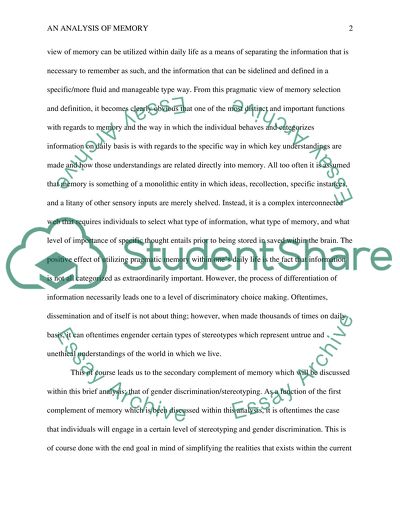Cite this document
(“Memory Strategies Essay Example | Topics and Well Written Essays - 1000 words”, n.d.)
Retrieved from https://studentshare.org/psychology/1478140-memory-strategies
Retrieved from https://studentshare.org/psychology/1478140-memory-strategies
(Memory Strategies Essay Example | Topics and Well Written Essays - 1000 Words)
https://studentshare.org/psychology/1478140-memory-strategies.
https://studentshare.org/psychology/1478140-memory-strategies.
“Memory Strategies Essay Example | Topics and Well Written Essays - 1000 Words”, n.d. https://studentshare.org/psychology/1478140-memory-strategies.


